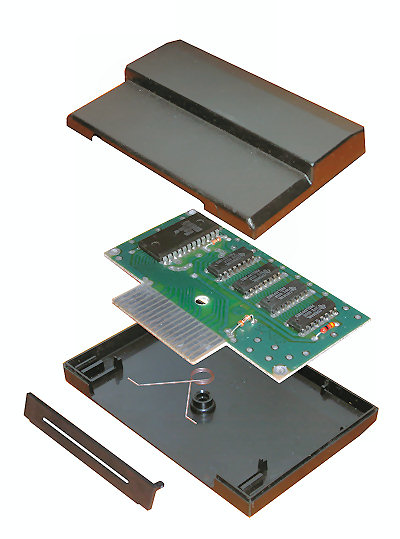
| Some cartridges required either a disk or
cassette to actually use them. The adventure
cartridge was one example. Another popular game like this
was Tunnels of Doom.
|

|
This was the text based game Pirate Adventure, which required the use of the Adventure Cartridge to play.
|
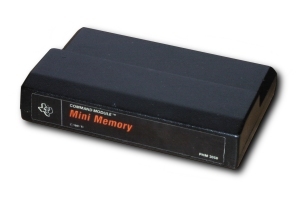
|
The Mini-Memory Cartridge was a neat device that allowed one to actually store small programs in
the cartridge. It also came with an assembly editor, which was how a lot of us first worked
with assembly language.
|
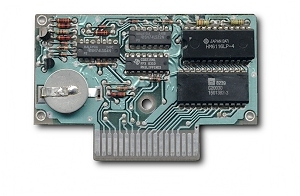
|
This is the "insides" of the Mini-Memory Cartridge. Notice the battery which kept a small charge
on the memory chips so it could keep programs even after it was removed from the computer. If you
pick one of these up, you will most likely have to change this battery.
|
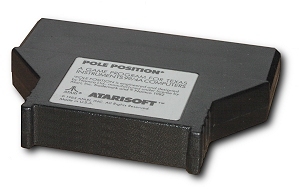
|
One of the many 3rd party cartridges produced for the TI-99. This one is by ATARI and happens to be
Pole Position, a very popular game at the time.
|
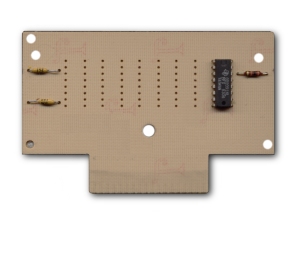
|
This is the "insides" of a standard TI Cartridge. The IC chip you see is the ROM chip where the game
was "burned in". This game happens to be Hunt the Wampus.
|
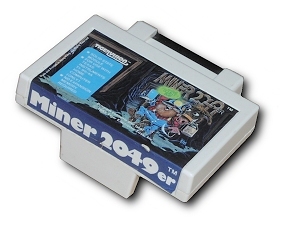
|
A very popular game at the time, Miner 2049er, was another 3rd party cartridge produced for the TI-99.
If you notice this cartridge is different as it did not plug into the standard game port on the TI, but
actually plugged into the expansion port on the side of the computer. There were a few other games that
were produced this way.
|
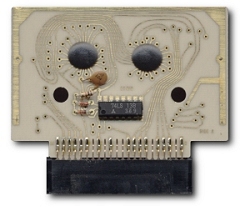
|
Here is an inside look at the Miner 2049er game cartridge. The two larger black circles are actually a material
covering the game chips. This was to keep someone from copying them.
|
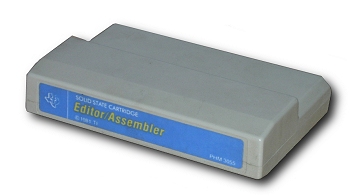
|
Here is a little more productive cartridge, which was part of the Editor/Assembler package.
|
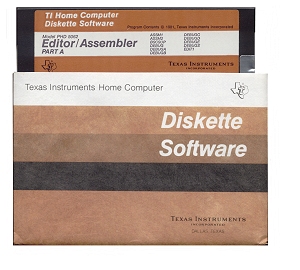
|
This is one of two disk that was also included in the Editor/Assembler package.
|

